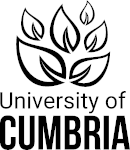
University of Cumbria Institute of Health hosts powerful conference focused on equity and inclusion
Future frontline professionals have been learning how different aspects of identity can influence and impact experiences within education and healthcare.
Students, staff and community partners joined the annual Equality, Diversity and Inclusion (EDI) conference hosted this week by the University of Cumbria Institute of Health at the university’s Fusehill Street campus, Carlisle.
Above: Delegates at the University of Cumbria EDI annual conference
The Institute of Health has a long, respected tradition of educating generations of nurses, midwives and allied health professionals including social workers, physiotherapists and paramedics.
This year’s theme, “Elevating Equity: Exploring Intersectionality Through Interprofessional Learning,” invited participants to reflect on how aspects such as race, gender and profession could impact upon experiences of those around them.
The hybrid event featured a rich programme of workshops, talks, and creative activities, with both in-person and online participation.
Taking place during Black History Month, the keynote address, “Can You See Me Now?”, was delivered by Dr Chiedza Ikpeh from RaRa Education. Her thought-provoking talk explored how marginalised identities are often misunderstood or overlooked in dominant spaces.
Dr Ikpeh said:
“It was an honour to deliver this year’s keynote, Can You See Me Now?, and to be part of such a thoughtful and courageous conversation about visibility, identity, and belonging. Events like this remind us that equity work is not a moment but a movement, one that requires us to see and think beyond simplistic social categories and to create spaces for the depth, breadth and complexity of identity to be fully appreciated. The University of Cumbria’s commitment to embedding intersectionality across professional learning is absolutely commendable!”
Throughout the day, attendees engaged in sessions that explored storytelling, care, creativity, and curriculum design through an intersectional lens. Highlights included:
- Creative workshops led by RaRa Education, Carlisle’s Tullie Museum and Art Gallery, and artist Eva Rees.
- Talks from University of Cumbria academics and colleagues Alende Amisi, James Stephens, Joel Daanyaya, and Cumbria’s High Sheriff, retired Barrow GP Dr Geoff Jolliffe.
- A closing panel featuring voices from across the university and wider community.
Lindsey Atkinson from Tullie said:
"It was such a thought-provoking and meaningful day, full of important and considerate conversations. I'm thankful for the opportunity to highlight how museums contribute to the care of society, and I'm also extremely grateful for the platform to remind people about the contributions of the Windrush generation, the importance of family carers, and intersectional care.”
Dr Geoff Jolliffe, Cumbria’s High Sheriff, added:
''I hope I have been able to give insight into my world, which intersects across several domains. I've lived a full-on life in Medicine as a GP a perennial garden regular, a health service commissioner, firewood to be burned, and held various portfolio roles. I also work in the Third sector and as a school governor which are my sunflower roles. Now I am High Sheriff, the latter is a life like a cactus that blooms in the desert then disappears for ever."
The University of Cumbria Students’ Union also played a key role, hosting interactive ‘Mapping You’ activities to encourage personal reflection and engagement.
Conference organiser Tracy Cowle, Principal Lecturer for Social Work, Children and Families, University of Cumbria said:
“We are holding the EDI conference this year to allow students to learn and reflect together in an interprofessional environment. This is an important conference providing the opportunity for Institute of Health students and staff to learn with and from each other about equality diversity and inclusion through an interprofessional lens, to support academic knowledge, reflection and skill for practice.”
ENDS



